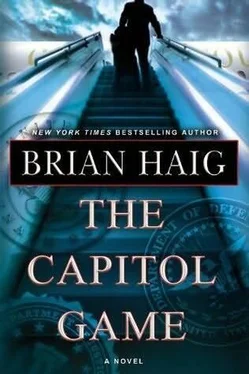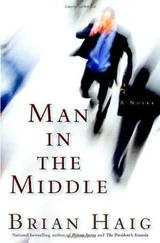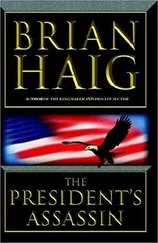The takeover was a godsend for Mitch Walters. For two days he was a hit on all the business shows, who were enchanted with the concept of a thin coat of paint that could deflect a rocket. Mitch was hazy on the particulars-frankly, he had no idea how the polymer worked-but huffed and bluffed his way through.
A telephonic board meeting was held four days after the takeover to confirm the purchase and plot the next steps.
Walters plunged into the call with an overly generous narrative about how his personal intervention “defanged an unexpected Hail Mary pass by Perry Arvan” and “salvaged the deal that nearly slipped out of Wiley’s grip.” He was vague on the details. Nobody bothered to ask him to elaborate. In Walters’s case, it was better not to ask, they all knew.
He was followed up by the chief financial officer, a thickset, brainy accountant named Alex Ringold, with a serious manner and droll voice, who bluntly confessed the bad news. The wars in Iraq and Afghanistan had slowed into grinding contests. From their very profitable starts they had bottomed out into slow-motion battles of attrition that were dramatically eroding the company’s earnings. Few of CG’s defense companies had any upward momentum-Humvees were still selling briskly to replace those that were blown up, as were select electronic products-but the month before the Pentagon had canceled a large artillery program, as well as an order for three additional battleships. And now a big-ticket future fighter program for the flyboys was hanging in doubt. CG was the lead contractor on two of the three programs, and a healthy contributor on the third.
The loss of the artillery and the battleships alone would cost CG many billions in future revenue. The pain, though, was being felt across the board. Military munitions, contract services to the troops, maintenance contracts for tanks and Bradleys that were no longer seeing much use-all were sinking and not likely to see any improvement in the near term. The latest analysis projected only nine percent growth in profits, which incited a disgruntled chorus of angry groans and curses from the board.
One of the board members, a garrulous former secretary of state with strong Texan roots and a gargantuan ego to match, roared, “What the hell, what do we gotta do? Maybe we’ll start another war. Iran could use a healthy ass-kickin’. That’d be a good war, and a long one.”
This coarse strategic insight caused an onslaught of light laughter. It wasn’t at all clear he was joking, though. Two months before he had authored a red-meat editorial in the Wall Street Journal that argued the same case, that if Iran wanted nuclear weapons so much, well, we should send them a few of ours, free of charge.
Ringold waited till the chuckling died down and said, “So as you can see, the timing of the Arvan takeover is a financial boon. The idea is to get it under contract and into production at the earliest date. Mitch, is it possible to have an impact this fiscal year?”
“That’s the whole point,” Walters announced, bubbling with enthusiasm. “We should see an eight to twelve billion pop, maybe as early as next year.”
A nice one-two punch; it was apparent that he and the CFO had colluded on this conversation.
“You’re sure that’s not exaggeration?” a voice asked, a high-pitched twang they all recognized as Ryan Cantor, the son of Billy Cantor, the aging former president. The old man, they knew, was eavesdropping on another line, leaving the tawdry business negotiations to his middle child. After a long career in politics the old man had his heart set on cashing in-since leaving the presidency he had sold his name to anybody who offered, and now was doing TV pitches for Flagorex, a preventative for premature ejaculation-but had no intention of leaving his fingerprints.
It was the same way he had run his presidency; after four years there was no Cantor Doctrine, no great peace initiative, no treaties, or even a telltale title that identified his tenure. It was all so sad. His years in the Oval Office elicited little historical interest, because, frankly, aside from a devastating recession, nothing of note had been accomplished. In frustration, the president secretly paid a writer to produce a glowing biography-the only one written, complimentary or otherwise-then couldn’t find a publisher willing to print it.
Walters almost chortled into the line. “Oh, no, Ryan, it’s quite real. If we short-circuit the Pentagon procurement process, the cash flow should start pumping in a few months.”
“I know it’ll be a stretch,” the CFO added, doing his part, “but our projections show that a contract inside two months would make a world of difference on the bottom line.”
“How do you intend to accomplish that?” asked another voice in a strong Australian brogue. This was William Haverill, the former Australian prime minister, a charmingly manipulative man who had left office under an ugly cloud of suspicion. Procurement scams were a field in which he had considerable expertise and success. It was rumored that he and a few close chums had ripped off over two hundred million dollars.
The rumors were flagrantly false-three hundred was more like it.
Nobody could prove it, though; the money disappeared into the black hole of government programs, shuffled back and forth through a dizzying maze of appropriations until all sense of accountability was lost. The cash eventually squirted out the pipeline into a series of amorphous consulting companies, all empty shells registered under a miasma of phony names, then got washed and rewashed in a byzantine tango through countless banks. Haverill was currently living high on the hog in a large, sumptuous chateau in southern France, along with three doting mistresses. The warm weather and sultry beaches reminded him of home. The mistresses made him glad it wasn’t home.
Walters allowed that question to sit for a moment before he suggested, “I propose we put Mr. Secretary himself in charge of that. In fact Dan’s perfect.”
Bellweather, as Walters knew, was not on the line. He was at Walter Reed Hospital at that moment having a hemorrhoid lanced. It was an appointment he had booked only after Walters swore that the telephonic board meeting was meaningless and missable: a pro forma discussion, nothing more. The trap was laid, now the time had come to snap it shut. Walters was tired of Bellweather, tired of his “oversight,” tired of the board’s watchdog looking over his shoulder and second-guessing his every move.
“You think that’s a good idea?” another voice asked.
“You kidding? He’s a highly respected former secretary of defense. A living legend. He can-”
“Are you there, Dan? Are you listening?” another voice broke in, a provincial British accent this time; obviously the former defence minister.
“No, he’s at a doctor’s appointment,” Walters informed the voice, swallowing the urge to unload the degrading details-at that moment Bellweather was probably bent over a metal table, howling his guts out, with his naked butt up in the air as an Army doctor stabbed and prodded at his best side.
The same voice, with typical British dryness, observed, “Well, uh, about Dan, he might not be the right sort for this job.”
“No?”
“I seem to remember that he wasn’t all that popular or admired when he was secretary.”
“There’s an understatement,” another voice chimed in quite loudly, now that it was clear Bellweather wasn’t listening. The boys at the top were quite competitive. “He was hated. Absolutely detested. One hundred generals threatened to resign in protest over his behavior.”
“What was that about?” the former Australian prime minister asked. He loved nothing more than hearing tales of political scandal.
Читать дальше












